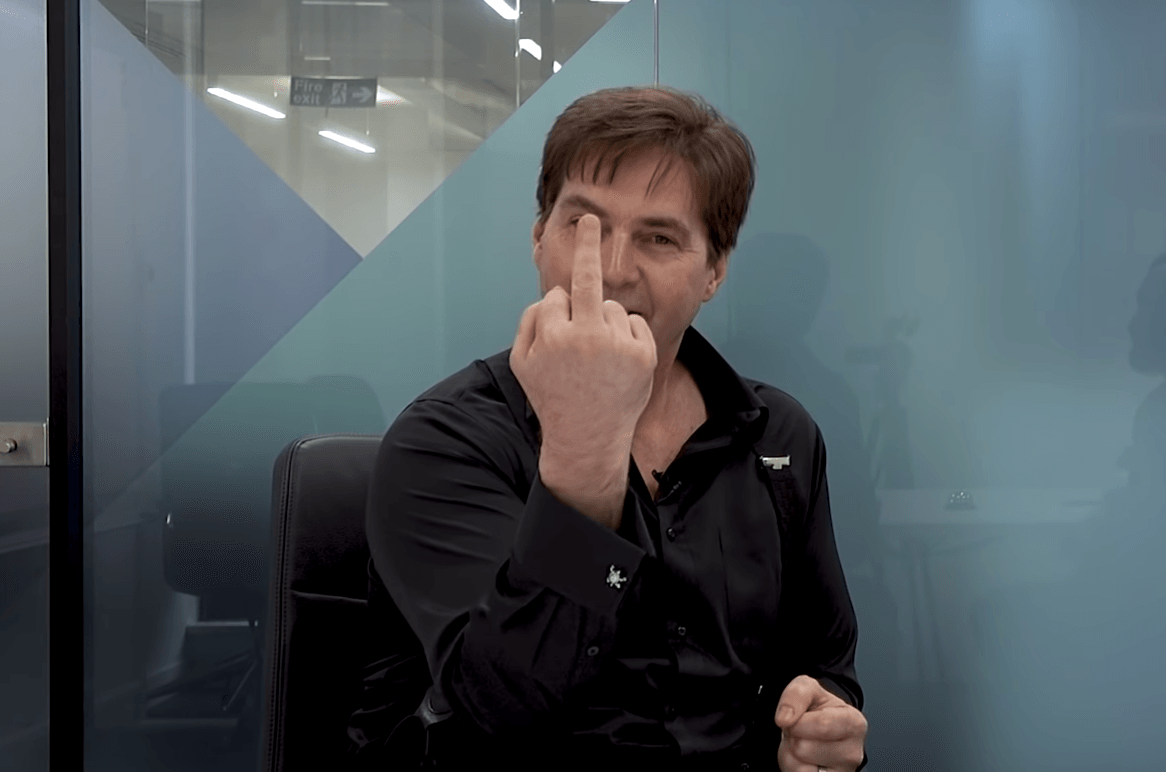Craig Wright’s Bitcoin Copyright: Blockchain Bombshell or Absolute Farce?

Craig Wright stunned Crypto Twitter when he filed a copyright on the Bitcoin whitepaper. But what does that actually mean for the blockchain industry? | Source: CoinGeek/YouTube
By CCN.com: As CCN.com earlier reported, Craig Wright has officially filed a copyright claim for the Bitcoin whitepaper. But what does this mean for Bitcoin and crypto generally? In short, it means very little.
For starters, the Bitcoin project was initially released under the MIT License. One of the most permissive licenses, it only requires that those who modify and redistribute the code do so under a different title.
Open Source Trumps Copyright
It gives anyone with the chops to do so the freedom to modify and redistribute the code as they see fit. Having a copyright on the system is common in open source. It doesn’t entitle the copyright owner to any exclusive rights : the open source license covers anyone who has worked with the code.
Filing the copyright presents a disturbing precedent, however. Copyrights don’t have to be submitted for them to be legitimate. It’s a common misconception among online writers that without registered copyrights, people can simply lift their work in a legal sense.
https://twitter.com/jerrybrito/status/1130812389048238080?ref_src=twsrc%5Etfw
These words are copyrighted. The copyright belongs to this reporter’s employer, CCN.com, a subsidiary of Hawkfish AS, and they fell under a legitimate copyright as soon as this reporter submitted them.
Does Craig Wright’s Sudden Copyright Move Hint at Disaster for Bitcoin?
Wright has filed the copyright, but it doesn’t require any validation or investigation from the copyright office. If multiple competing claims are filed, they will all be honored and registered. The holders are then free to engage in lawsuits about who owns what, but no one else has ever thought to file a copyright on the Bitcoin whitepaper or its code.
Why didn’t Wright file for the copyright before? No answer on that, of course.

The move is likely a weak attempt at bolstering Wright’s so-far unproven claim to be Satoshi Nakamoto. What we need to ask ourselves is what happens in the event that Wright actually proves his identity, signs messages with those old Satoshi addresses, and goes on to receive patents for most of the key design principles in blockchain technology.
Wright claims that other blockchains besides his chosen implementation of Bitcoin, Bitcoin SV, will have to pay for the privilege of using the codebase. This notion would be battled fiercely, likely crowdfunded by numerous millionaires and billionaires who have a stake in the free functioning of Bitcoin.
Are we entering a new paradigm, where traditional courts govern our nascent technologies?
The whole idea of registering a copyright or a patent runs counter to the cypherpunk ethos of “code is law.” In essence, if you want something to be patented or copyrighted, you should code it such that it’s impossible to copy or steal.
Bitcoin SV Price Explodes Past $100 for Absolutely No Reason
Bitcoin SV skyrocketed by as much as 100% on the news of Wright’s copyright filing, but again, the move has no legs in terms of making him legitimately Satoshi Nakamoto. Bitcoin has dropped back toward $8,000.

In the end, if Wright does not actually prove his identity as Satoshi Nakamoto, the copyright filing could create a new set of problems. Surely the US government will not look kindly on a man who hoodwinked them.
Is this all part of Craig Wright’s master plan? Currently, things seem uncertain regarding Bitcoin. Are massive patent and copyright lawsuits in the cards for Bitcoin developers and companies?
We don’t know from here. What’s certain is that, if Craig Wright is truly a fraud, as some have alleged, he’s going for the gold medal, doubling down on already-wild claims with as much officiousness as he can achieve.
Disclaimer: The views expressed in the article are solely those of the author and do not represent those of, nor should they be attributed to, CCN.com.